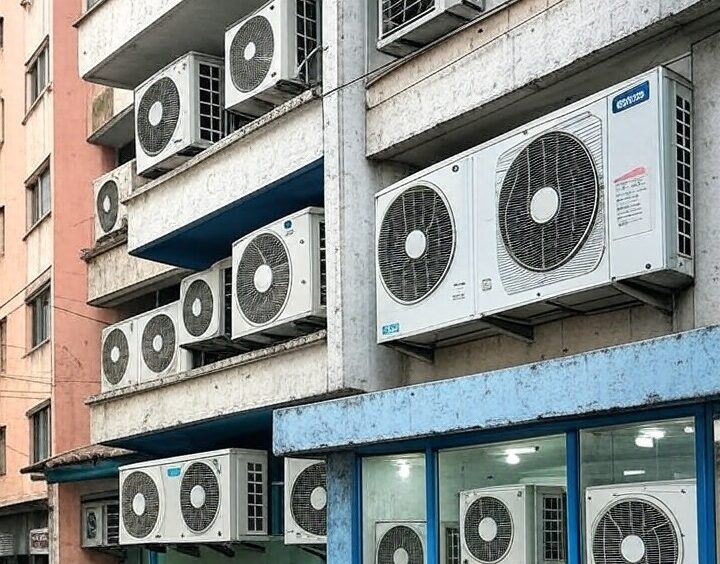High AC Usage In Chennai Emerges As Major Climate Challenge: Study

iFOREST study highlights poor maintenance, refrigerant leaks and lack of awareness driving emissions and household costs
Rising temperatures are pushing households in Chennai to rely heavily on-air conditioners (ACs), but poor maintenance practices and refrigerant leaks are amplifying the city’s climate footprint, according to a new study by the International Forum for Environment, Sustainability and Technology (iFOREST).
The survey, which covered 3,100 households across seven major cities including Delhi, Mumbai, Kolkata, Ahmedabad, Pune and Jaipur, found that Chennai records the most intense AC usage. On average, households in the city operate air conditioners for 4.4 hours daily, with 87 per cent owning one unit and 13 per cent owning two or more.
Despite this growing dependence, awareness of climate-friendly refrigerants remains low. Nearly 64 per cent of respondents admitted they were unaware of greener alternatives, while only 16 per cent expressed willingness to switch if costs were affordable, the lowest among all surveyed cities.
The study also flagged widespread improper servicing. More than half of Chennai’s residential units receive refrigerant top-ups annually, compared to the national average of 41 per cent. Ideally, a unit should need a refill only once every five years, provided leaks are addressed. Instead, frequent refills without fixing leaks release large volumes of hydrofluorocarbon (HFC) gases such as HFC-32, which has a global warming potential 675 times higher than carbon dioxide.
This practice carries a dual burden. Each refill costs households an average of Rs 2,300 the highest in the country, while fuelling emissions. The study estimated that refrigerant leakage alone contributed 52 million tonnes of CO₂ equivalent emissions in 2024, a figure projected to rise to 84 million tonne by 2035.






































































































































































































































































































































































































































































































































































































































































































































































































































































































































































































































































































































































































